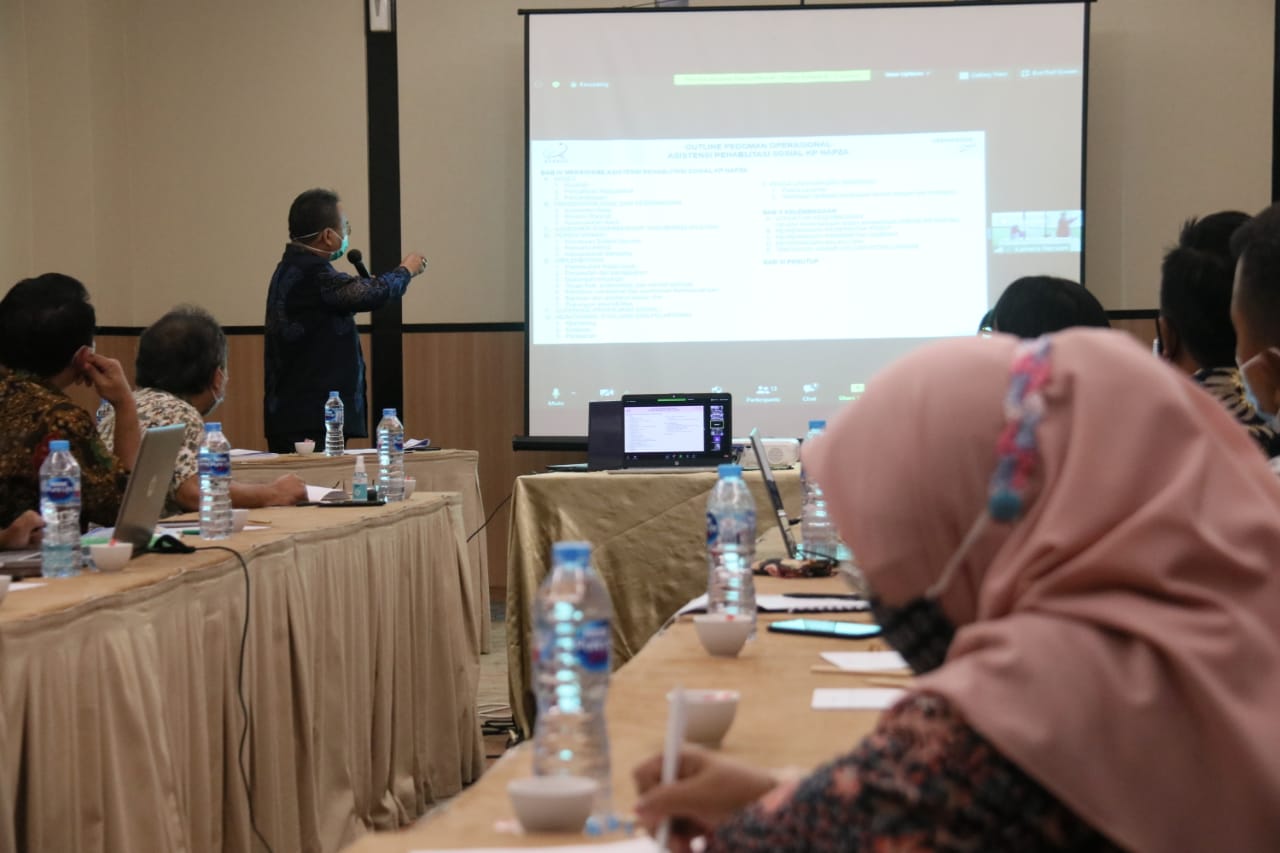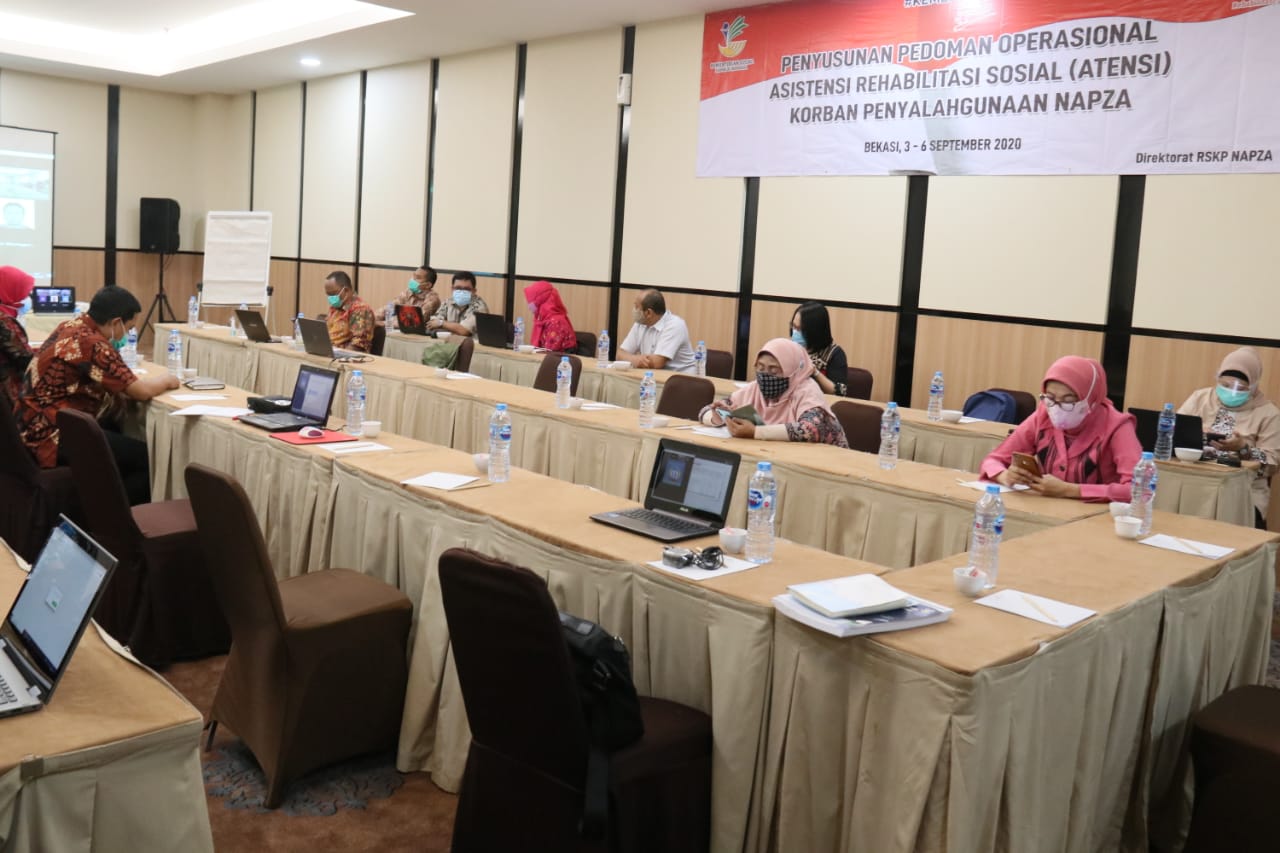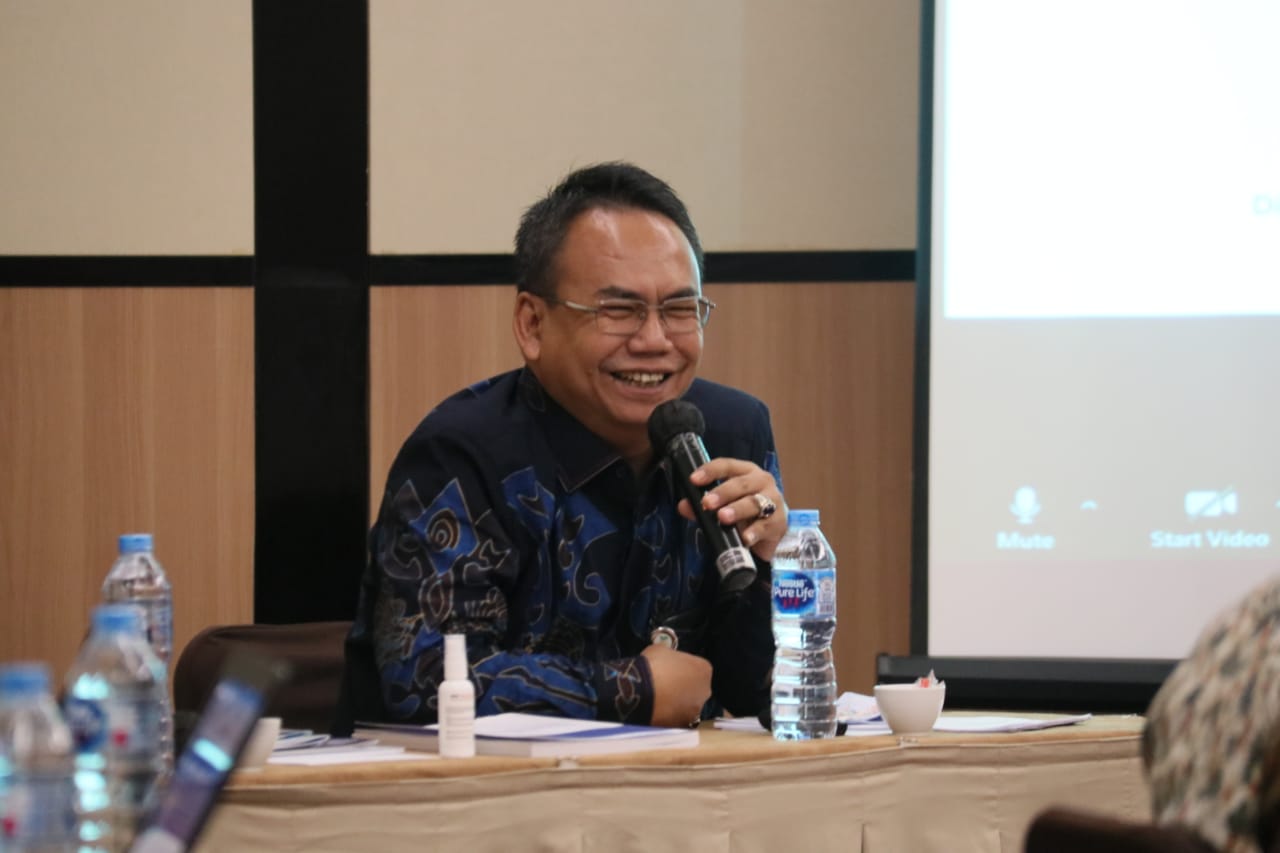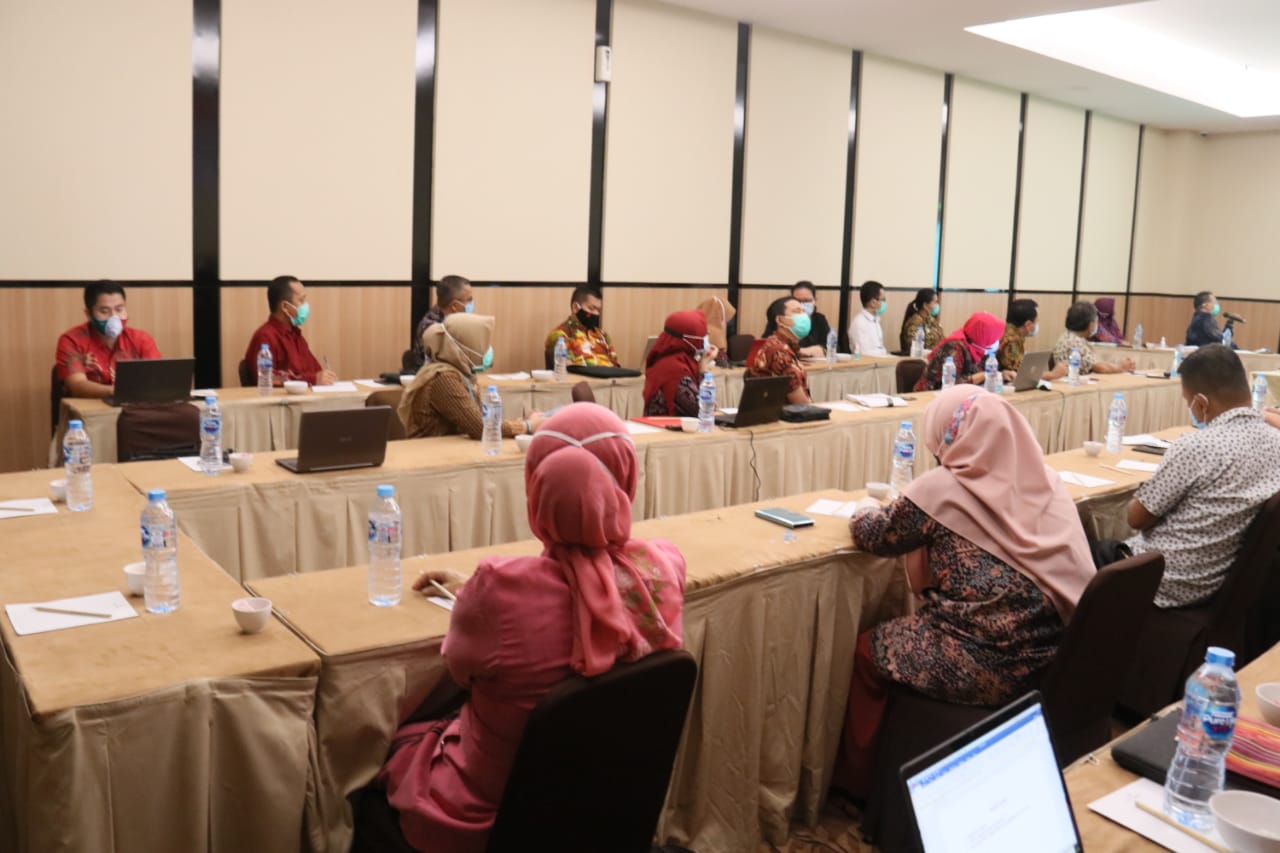This guideline will become a reference for the Social Rehabilitation Center for KP Drugs in carrying out ATENSI. Therefore, it is important to involve the Social Rehabilitation Center in the preparation of guidelines to internalize real actions in the implementation of ATENSI KP Drugs.
The Director General of Social Rehabilitation, Harry Hikmat said that the operational guidelines will also be used as material in the discussion of the Budget Work Plan of the Ministry of Institutions (RKA K/L) with the Director General of Budgeting of the Ministry of Finance and Bappenas which is scheduled for mid-September 2020.
In realizing the mandate of Law no. 35 of 2009 which states that narcotics addicts and victims of narcotics abuse are required to undergo medical rehabilitation and social rehabilitation, the Ministry of Social Affairs carries out social rehabilitation to realize the social functioning of KP Drugs.
This guideline will describe the current situation of KP Drugs referring to several reliable sources, one of which is the National Narcotics Agency (BNN). Starting from KP Drug data to types of narcotics, psychotropics, addictive substances commonly used by addicts.
The trend of KP Drugs sourced from the National Narcotics Agency shows that the family is the best place and as a preventive measure in the social rehabilitation process. In addition, KP Drugs is also surrounded by an environment where members of the community gamble, drink alcohol and are drug dealers.
Data on KP Drugs that received social rehabilitation services from the Ministry of Social Affairs from 2015-2019 as many as 82,952 people from the total population of KP Drugs which is 3.6 million KP Drugs based on BNN data and the UI Research Center for 2019. This number shows that effective efforts are needed from the State to reach larger.
This representation concludes that the ATENSI program was built to reach many drug addicts by involving the role of families and Social Welfare Institutions or Compulsory Reporting Recipients Institute (LKS/IPWL).
Harry emphasized that ATENSI ranges from poor families to upper-class families. "Because the focus of social rehabilitation is social services, not social assistance. KP Drugs are not only from poor families, but also at all economic levels," he said.
Harry also directed that in accordance with the life cycle approach, the operational guidelines also need to display ATENSI which can span from an early age to old age. This is called the life cycle approach or (life cycle).
In realizing ATENSI, partnerships are important, one of which is with BNN. This strategic partnership is a step that needs to be pursued in the future. It can be in the form of cooperation in providing capacity building training for employees, LKS and IPWL.
It is also important to mention that the social rehabilitation of drug addicts has a unique scheme in overcoming the negative impacts of drug abuse, namely demand reduction efforts that reduce the demand for drugs and harm reduction that reduce the adverse effects of drugs.
In the future, the service paradigm shift from sectoral to integrated services will be realized in the form of a Narcotic Rehabilitation Center where the KP Social Rehabilitation Center acts as a Social Service Center (SERASI).
The preparation of this operational guideline was carried out at the Santika Mega City Hotel Bekasi and involved 30 participants from the Directorate of Social Rehabilitation for Drugs Crime, the Secretariat of the Directorate General of Social Rehabilitation, the Inspectorate for Social Rehabilitation, the Social Rehabilitation Center for Drugs Abuse Victims and Social Workers.
 English
English
 Bahasa
Bahasa




